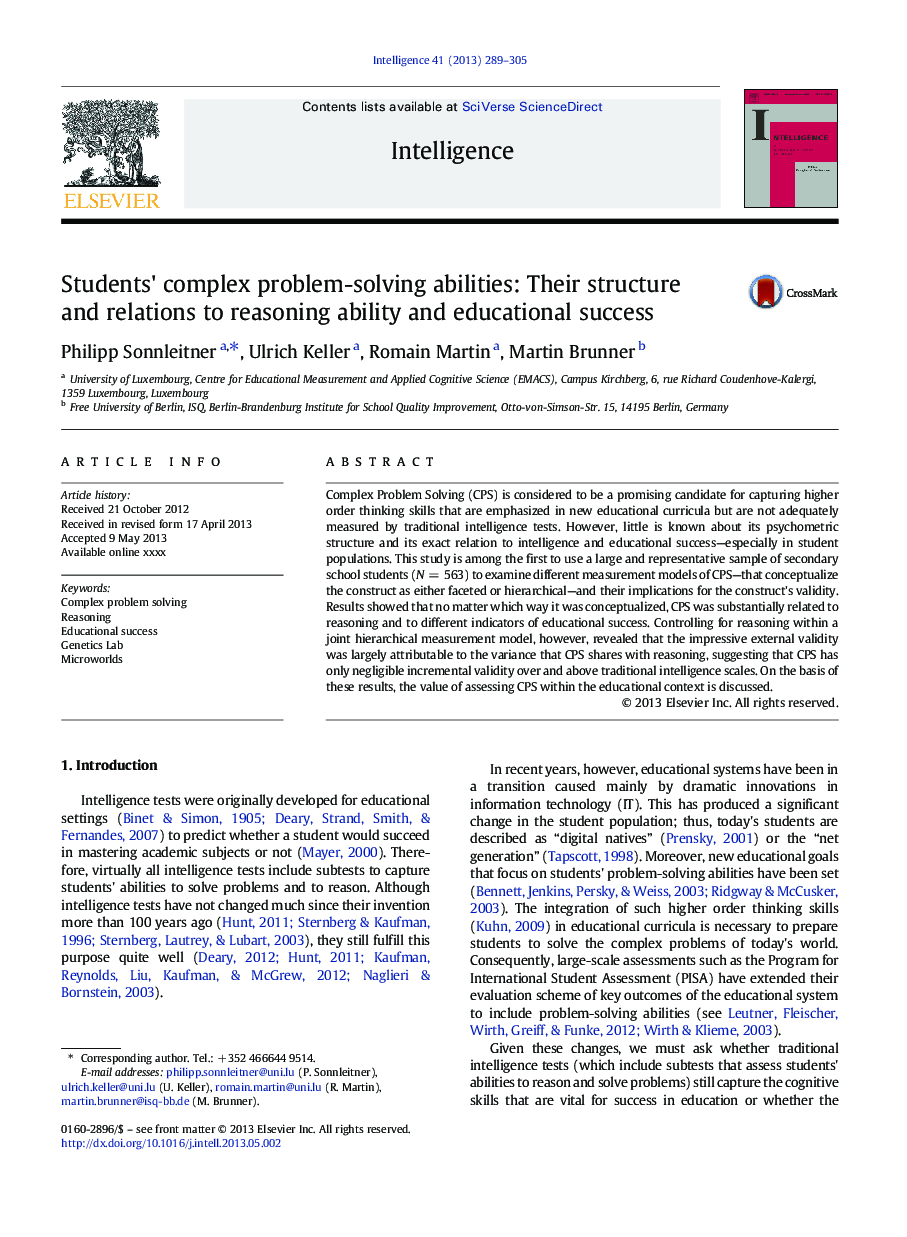| Article ID | Journal | Published Year | Pages | File Type |
|---|---|---|---|---|
| 10459391 | Intelligence | 2013 | 17 Pages |
Abstract
Complex Problem Solving (CPS) is considered to be a promising candidate for capturing higher order thinking skills that are emphasized in new educational curricula but are not adequately measured by traditional intelligence tests. However, little is known about its psychometric structure and its exact relation to intelligence and educational success-especially in student populations. This study is among the first to use a large and representative sample of secondary school students (NÂ =Â 563) to examine different measurement models of CPS-that conceptualize the construct as either faceted or hierarchical-and their implications for the construct's validity. Results showed that no matter which way it was conceptualized, CPS was substantially related to reasoning and to different indicators of educational success. Controlling for reasoning within a joint hierarchical measurement model, however, revealed that the impressive external validity was largely attributable to the variance that CPS shares with reasoning, suggesting that CPS has only negligible incremental validity over and above traditional intelligence scales. On the basis of these results, the value of assessing CPS within the educational context is discussed.
Related Topics
Social Sciences and Humanities
Psychology
Experimental and Cognitive Psychology
Authors
Philipp Sonnleitner, Ulrich Keller, Romain Martin, Martin Brunner,
